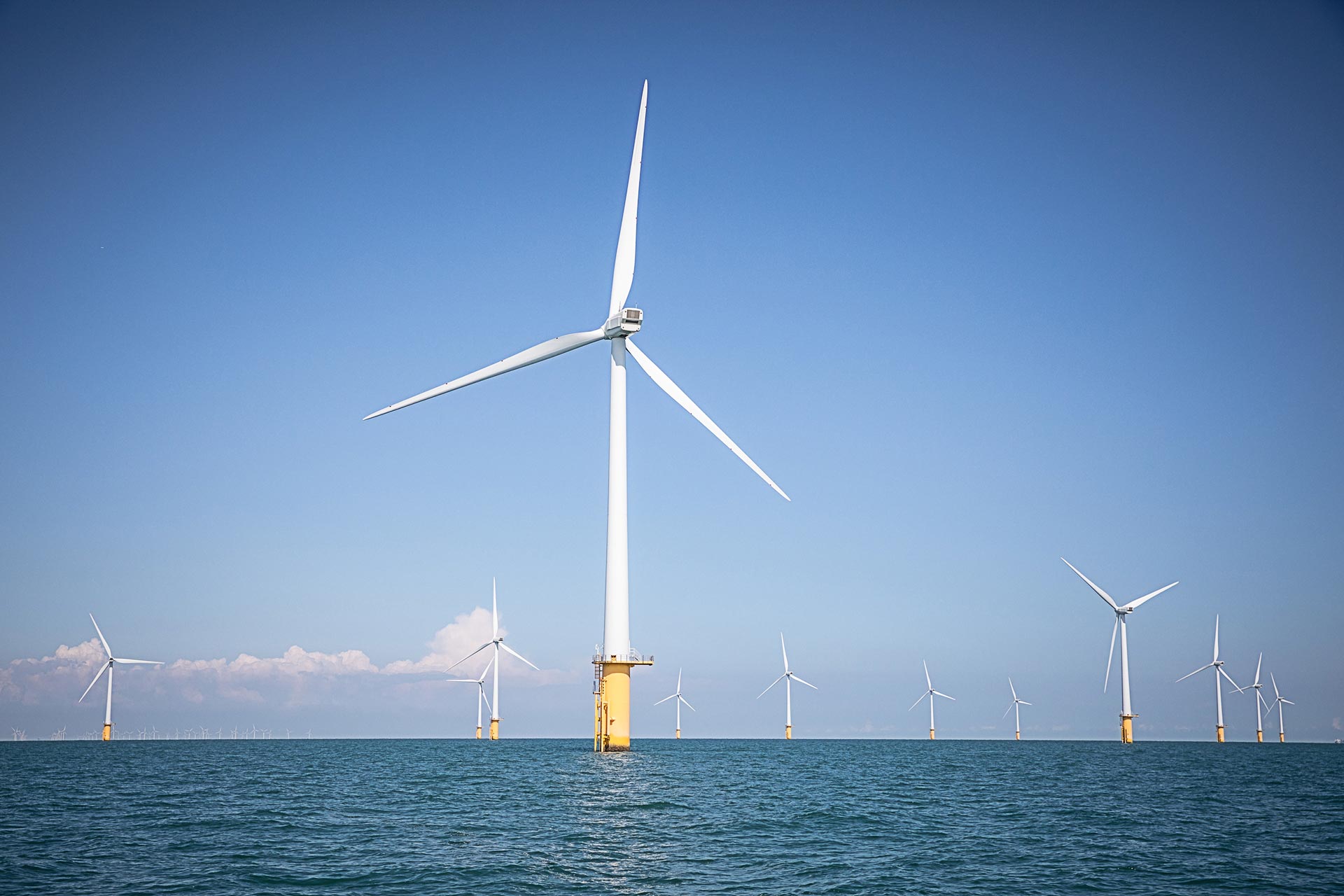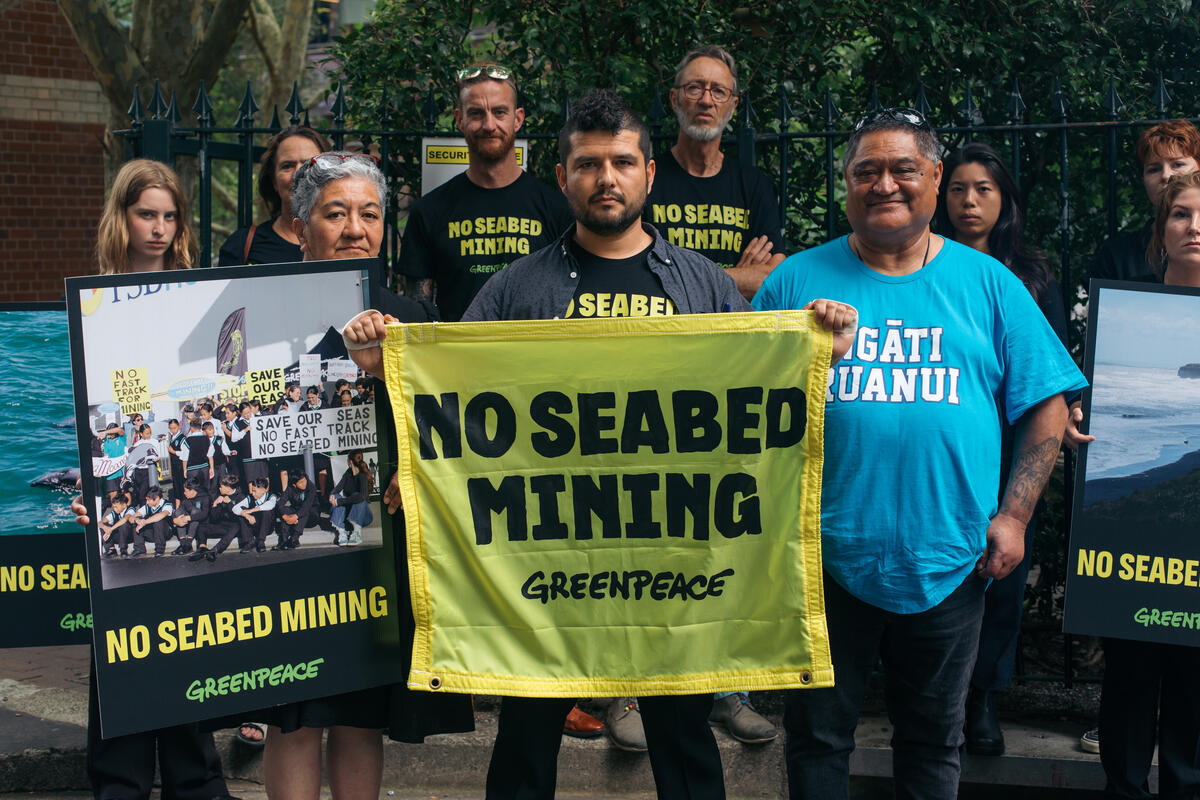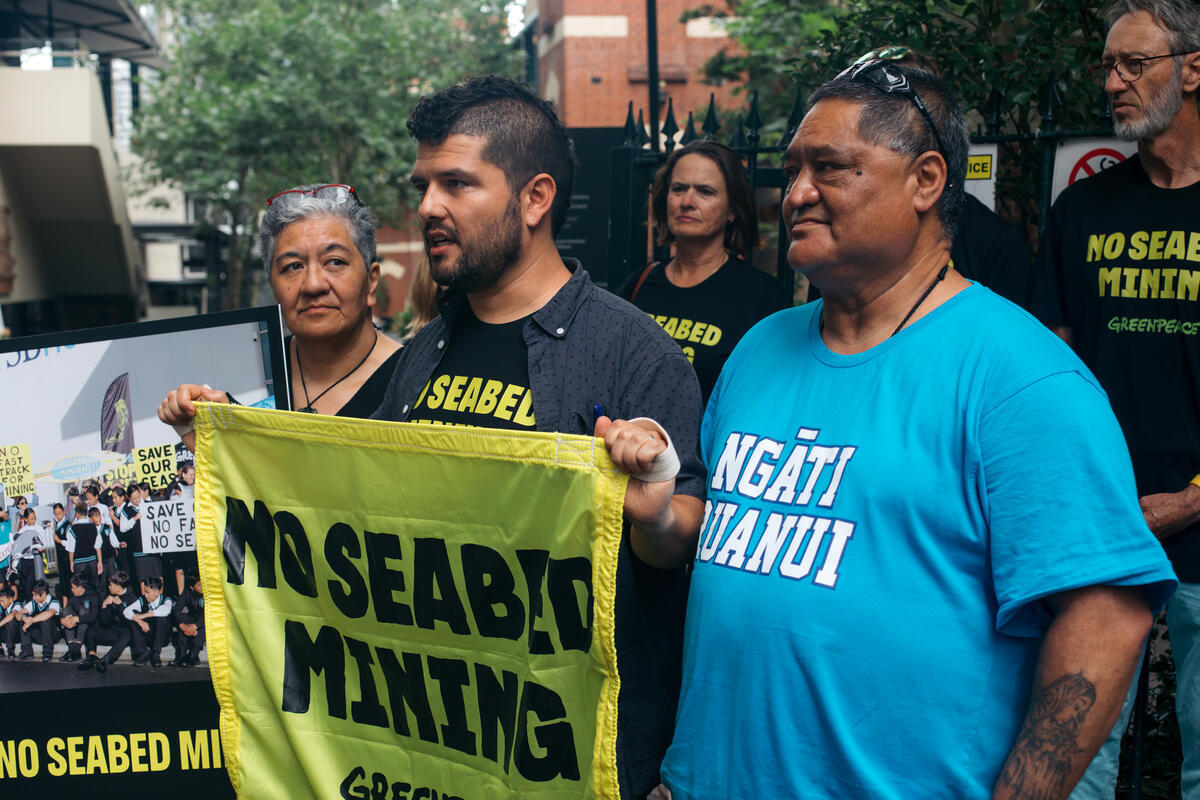Stop the Fast Track Approvals Bill
The Fast Track Bill is the most damaging piece of environmental legislation any Government has introduced in living memory.
The Luxon-led Government has launched a war on nature.

Fast-tracked destruction
The Fast Track Bill is at the centre of the Government’s war on nature.
It will destroy the existing protections for freshwater, forests, oceans and wildlife, while ignoring the concerns of local communities.
It is also an attack on democracy. Under the Fast Track Bill, previously rejected projects could go ahead. Despite losing numerous legal hearings, the Fast Track Bill could allow Trans-Tasman Resources (TTR) to begin mining the seabed in the South Taranaki Bight.
We won’t back down. Stand with us to protect nature, democracy and Te Tiriti.
Fast track, wrong track
Opposition to the Fast Track is widespread. Parliament received around 27,000 written submissions on the Fast Track Approvals Bill. And in June, over 20,000 joined the March for Nature.
Some industry leaders are already saying they won’t use the Fast Track process because they’d risk losing their social licence to operate. We can influence other companies to follow their lead and say no to the Fast Track.
Sign the open letter. Let polluting companies know they’re on a fast track to resistance if they plan to dodge laws designed to protect people and nature.

What’s at risk
The government’s list of companies invited to apply through the Fast Track consenting process includes the most environmentally destructive industries in New Zealand.

Trans Tasman Resources
TTR have been invited, even after failing to prove that seabed mining won’t cause environmental harm.
The South Taranaki Bight is home to rare animals – like blue pygmy whales, critically endangered Māui dolphins, and kororā.

Fonterra
Mega-dairy company Fonterra is Aotearoa’s biggest climate & freshwater polluter. But it’s received an invitation to the Fast Track.
Communities across Aotearoa already face health risks from nitrate contamination of drinking water.

Talley’s
Commercial fishing company Talley’s was also on the Fast Track Approvals invite list.
Talley’s is a company with a long history of destructive fishing practices, overfishing, and multiple incidents of trawling in closed areas.
FAQs on the Fast Track Bill
On the 7th March, the Government introduced a new bill to fast-track consents for development projects, which would allow corporations to bypass environmental protections and democratic process.
The new Fast-track Approvals Bill would allow just three Ministers to approve or deny development projects without having to go through the usual checks and balances that are in place to protect nature. It would bypass not only the Resource Management Act, but also the Wildlife Act, the Conservation Act, the Reserves Act, the Heritage Act, coastal permits under the Fisheries Act, the Crown Minerals Act, and the Public Works Act.
This opens the door for hugely damaging projects like seabed mining off the coast of Taranaki. It also gives some of New Zealand’s most destructive companies, like Fonterra and Talley’s, invitations to continue polluting the environment, contaminating drinking water with nitrates, and depleting the oceans through destructive fishing practices.
Christopher Luxon has labelled the fast-track bill a ‘one stop shop’ – and it is. It is a one stop shop for undermining democracy, removing public participation, and declaring war on nature.
Fast-track consenting is a process which would enable just three Government Ministers to approve development projects more quickly, by bypassing planning legislation and the checks and balances that are in place. The Government wants to strip away any need for meaningful public consultation about developments that Ministers in charge of development deem to be of regional or national significance.
Just three ministers would be left to make decisions on which projects will be consented, after which they would send those projects to a panel of government-selected experts. Those experts would have a maximum of six months to consider a project, and set conditions around it – note that the experts themselves would be unable to deny a project.
If the Ministers disagree with the conditions set by the expert panel, they can send the application back to the panel to review again.
There would be two pathways for projects to be fast-tracked through this new legislation. Firstly, a project could be directly included in the legislation. These projects would be determined by a ‘fast-track advisory group’, convened by the Government. The second pathway is for an application to be made to the ministers, by the people who want the project to be fast-tracked. This would then be considered by the expert panel, but once again, the final decision would be made by the three ministers.
The vast majority of people in New Zealand care deeply about protecting nature. But the fast track consenting bill the Luxon Government has introduced could be the single worst law ever passed for the environment.
It’s a war on nature, and it undermines democracy and Te Tiriti o Waitangi.
We cannot stand by and allow the forests and oceans of Aotearoa to be turned into open-cast mines, their rivers and lakes turned into sewers, or precious wildlife to be condemned to extinction.
-

Luxon’s mining obsession drives away second offshore wind investor
Greenpeace is calling on the Government to restore confidence to offshore wind investors by cancelling the fast track process for seabed mining, after it was revealed today that another offshore…
-

Greenpeace says Fast Track Law will continue to be resisted
Greenpeace is warning that the Fast Track Approvals bill will continue to be resisted when it becomes law after passing its third reading in parliament yesterday.
-

Norway stops seabed mining, putting more pressure on NZ to follow
In a significant victory for the global Greenpeace campaign to stop seabed mining, Norway is stopping the first licensing round for deep sea mining in Arctic waters, which Greenpeace says…
-

Seabed mining AGM disrupted by representatives of Ngāti Ruanui and Greenpeace
Greenpeace activists, along with representatives of Taranaki iwi Ngāti Ruanui, have disrupted the annual general meeting of Manuka Resources, the Australian mining company planning to fast-track seabed mining in the…
